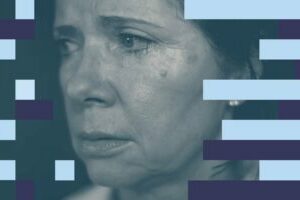From The Guardian: “It’s almost a year since my dad died. Even though he lived into his late 80s, and even though his health problems began when I was a child, his death was nevertheless a terrible shock. It still is. It was the most predictable thing in the world, but I still can’t believe it. The wave of grief surges up whenever I think of a joke he would have liked, or whenever I hear his advice in my head, and whenever I catch sight of his ashes, stored in a Hellmann’s mayonnaise jar on my bookshelf until a more suitable container can be found. (He liked Hellmann’s, but not that much.) Each time I’m left gasping for air from the pain and, strange as it sounds, I’m grateful for it. Because I know this grieving life is far better than the alternative.
Years ago I volunteered as a bereavement counsellor, and I remember vividly the moment in training where it finally clicked: my job was not to take away people’s grief, but to help them feel it. You see, you may not need counselling or therapy if you are truly grieving; but you may well need it if you aren’t. Grief is a horror, and it’s supposed to be. Where grief has got stuck, or when it has still not even begun – that is when you might need a protected space, and time, and a good, receptive listener with whom you can find it in yourself to truly suffer the pain of your loss.
As a psychodynamic psychotherapist, I have learned that the capacity to feel loss and grief constitutes nothing less than the foundation of all mental health, from infancy through to old age. Whatever life stage we are in, the inability to experience loss and to mourn it means we remain fixed where we are, unable to develop, desperately trying to hold on to whoever or whatever it is that is gone. It might be a person, a relationship or a dream that has died, but if we scroll or drug or literally run away from our feelings, the result is the same: we’re trapped. Without loss, without grief, there can be no growth.”

***
Back to Around the Web











